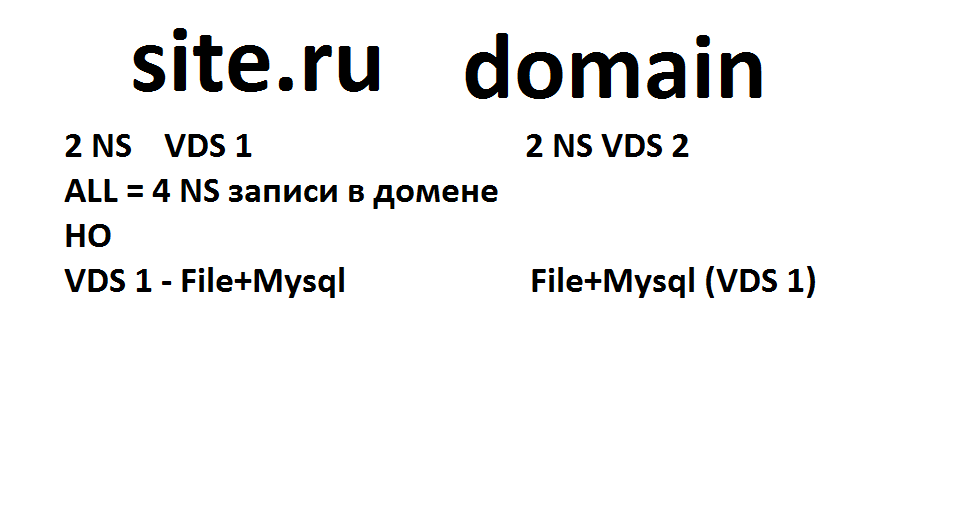Answer the question
In order to leave comments, you need to log in
Four DNS addresses per domain. Really?
I have a question, maybe a stupid one...
In general, I thought: there is a website and there is a MySQL database. If you rent an extra hosting, upload site files to it, and register addresses from the first hosting ... And add two additional DNS addresses to the domain ... Will this work in principle? Will it unload hosting?
For example:
First hosting - site + MySQL
The site will start to slow down and people will be thrown to the third and fourth DNS addresses of the domain ...
And the second hosting Site + MySQL from the first hosting ...
Replication exists MySQL, and how to smoothly configure sites on job?

Answer the question
In order to leave comments, you need to log in
You should learn to formulate your thoughts, master the terminology in order to use it competently.
And read about balancers, for example, about round-robin, which allows several IP addresses for one domain name.
If you need scripts to be processed on several machines and have a common base, this can be done, in particular, using DNS.
For one domain, you can create several A records with different ip. The application will run on several VPS, the base on one.
If you want to divide the load from the base, it is better to do one master, where the recording will be made and several slaves, from where the data will only be read. This will be easier and more reliable than master-master replication. But it requires support for such a scheme at the application level.
But if you don’t have a very large load, it’s better to just take a more powerful virtual machine for the base and not mess with replication. It is much easier and more reliable, and even if it is more expensive, it will save a lot of effort and nerves.
At the same time, master master replication must be supported by your application and in general it is not the simplest phenomenon in itself, if you are not a guru of muscle and distributed systems, this will be beyond for you
Didn't find what you were looking for?
Ask your questionAsk a Question
731 491 924 answers to any question